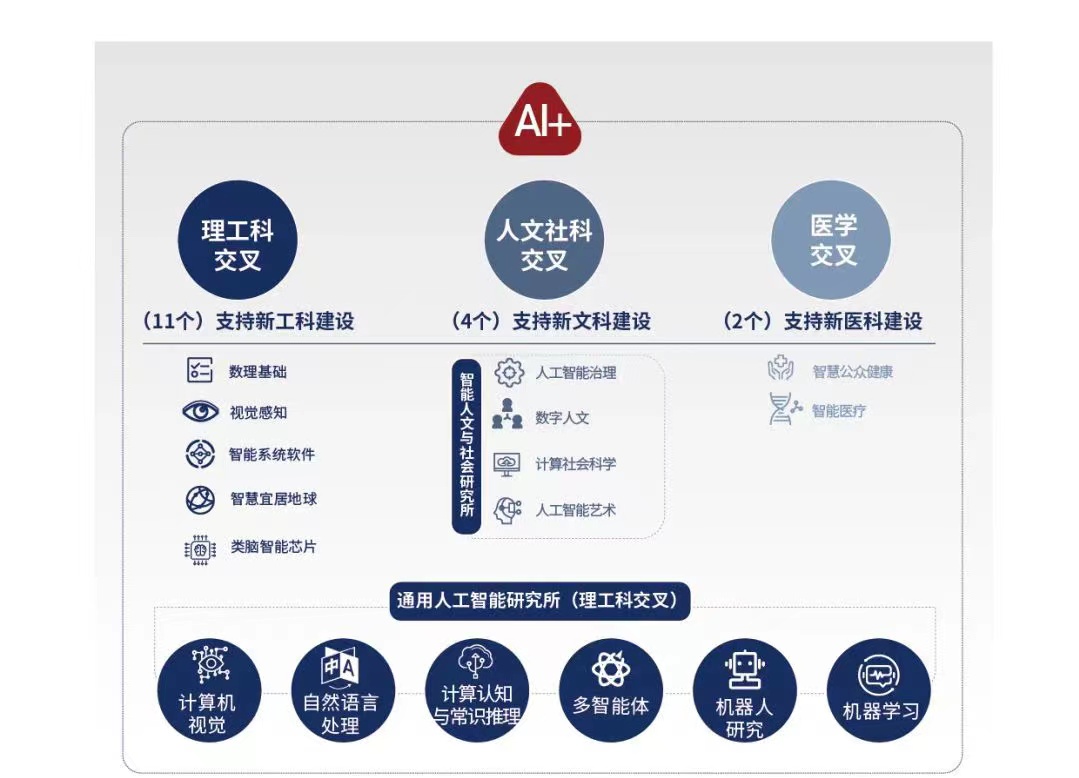The Institute for Artificial Intelligence, established in April 2019, is an independent entity directly affiliated with Peking University. It serves as a major platform to coordinate relevant resources across the university, build a world-class discipline in artificial intelligence, support national AI strategies, and cultivate top-tier talent in the field of AI.
The institute consists of 17 research centers, including:
AI+STEM Interdisciplinary Directions (11 research centers): mathematical foundations, visual perception, intelligent systems software, smart and sustainable earth, neuromorphic intelligence chips, computer vision, natural language processing, computational cognition and commonsense reasoning, multi-agent systems, robotics research, machine learning
AI+Humanities and Social Sciences Interdisciplinary Directions (4 research centers): AI governance, digital humanities, computational social science, AI art
AI+Medical Interdisciplinary Directions (2 research centers): smart public health, intelligent healthcare. This interdisciplinary field closely collaborates with the National Research Institute of Health and Medical Big Data at Peking University. The National Research Institute of Health and Medical Big Data at Peking University is an entity institution supported by the National Health Commission. It relies on the excellent and abundant resources of the School of Medicine and focuses on the governance and standards of health and medical data resources, as well as the application of artificial intelligence technologies in disease diagnosis and treatment and public health.

In January 2021, the Institute for Artificial Intelligence, in collaboration with Yuanpei College, established the Peking University General Artificial Intelligence Experimental Class, The Class led by Professor Zhu Songchun, aims to cultivate world-class interdisciplinary talents with a focus on "general knowledge, general intelligence, and general applicability".
Recruitment Directions:
The research institute implements a tenure track and research track appointment system, aligned with international standards. It actively seeks academic leaders and outstanding young scholars in various disciplines, including computer vision, natural language processing, computational cognition and commonsense reasoning, machine learning, robotics, multi-agent systems, mathematical foundations of artificial intelligence, neuromorphic intelligence chips, intelligent system software, visual perception, artificial intelligence governance (ethics, law, etc.), smart public health, intelligent healthcare, computational social science, artificial intelligence art, smart and livable Earth, digital humanities, and other interdisciplinary fields.
Qualifications:
Applicants should hold a doctoral degree, have experience in leading or participating in significant research projects or engineering development projects in relevant disciplines, and have achieved influential research results recognized by peers both domestically and internationally.


